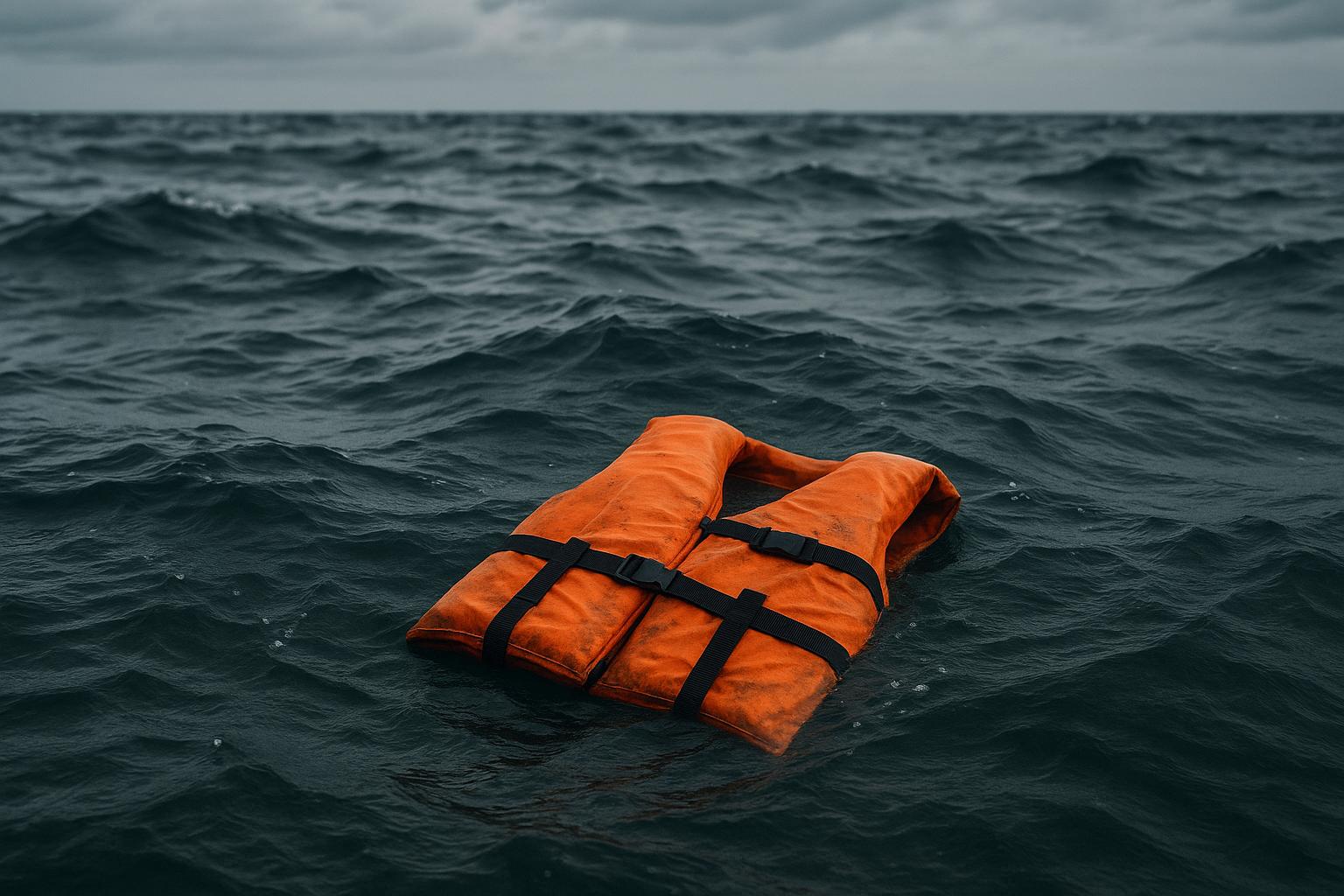A record-breaking dinghy carrying 125 migrants crossed the English Channel to reach UK shores, marking the largest single-boat arrival ever recorded and highlighting the escalating migrant crisis confronting Britain. The astonishing figure nearly doubles the typical number of asylum seekers found on small boats making the perilous journey from France. The arrival occurred on a day marked by tragedy, amid reports of three deaths including a child and two Somali women who lost their lives attempting the crossing.
According to reports, the dinghy surpassed the previous record of 107 migrants on a single boat set earlier this summer. The weekend saw around 1,300 migrants arrive in small vessels, underscoring a surge in crossings that has brought the total for 2025 to over 32,000, matching the record set in 2022. The Home Secretary, Shabana Mahmood, condemned the crossings as "utterly unacceptable," condemning the people-smugglers exploiting the situation and pledged to deploy all means necessary to "restore order" to the UK’s immigration system.
These larger boats are believed to be a tactical response by smugglers to intensified border controls, designed to maximise profit and exploit available gaps. Authorities have been striving to intercept boats and equipment, which are often sourced from countries like China and Turkey. In parallel, the UK government has secured a fresh agreement with Germany to allow police there to more easily seize smuggling boats stored in warehouses — a move designed to close legal loopholes identified in the fight against smuggling.
The grim human cost of these crossings was underscored by the death of a migrant child, whose body was found washed ashore near Boulogne-sur-Mer in France. This tragedy followed the deaths of two Somali women, who were reportedly crushed in an overcrowded dinghy. French authorities also reported that rescuers had saved dozens of migrants suffering from hypothermia and other dangers, illustrating the perilous nature of the journey across the Channel.
This rising tide of migrants crossing the Channel has become a defining challenge for the Labour government led by Prime Minister Keir Starmer. Since taking office, the government has abandoned the controversial Rwanda deportation plan, shifting focus toward dismantling smuggling networks and enhancing intelligence sharing. New sanctions have been announced targeting individuals and groups financing or facilitating illegal crossings, including asset freezes and travel bans. Foreign Secretary David Lammy hailed these as the world's first sanctions framework focused on people-smugglers, though critics note many smugglers operate beyond UK jurisdiction complicating enforcement.
Despite these efforts, the surge continues, adding to the backlog of asylum claims exceeding 100,000 and fueling political tensions domestically. Immigration has surged to the top of public concern, prompting right-wing calls for more stringent measures such as mass deportations and controversial withdrawals from human rights agreements.
A complementary initiative between the UK and France—the so-called one in, one out plan—was formalised in August 2025, aiming to reduce illegal Channel crossings by returning migrants arriving illegally in small boats to France in exchange for a matched number of verified migrants entering the UK through safer, legal routes. This pilot scheme, currently processing around 50 migrants a week, intends to dismantle smuggling networks by offering controlled and secure migration pathways. It represents a broader strategy to undermine the business model of people smuggling while attempting to save lives.
Nonetheless, the statistics tell a stark story. By August 2025, over 28,000 migrants had crossed into the UK by small boats—a 46% increase over the previous year. The Channel, particularly the Pas-de-Calais coast, remains a hazardous route with at least 17 migrant deaths recorded in 2025 alone. On one of the busiest days in 2025, nearly 1,200 migrants made the crossing, highlighting the scale of the crisis despite government efforts.
Public reaction has been sharply critical of the government’s handling of the situation. Social media responses underline frustration with Labour’s approach, accusing the administration of failing to curb the increasing flows and enabling ‘illegal dinghy markets’ to expand. Conversely, some voices call for innovation in creating safe and legal pathways for refugees, pointing out that addressing root causes and establishing orderly processes would better undercut criminal smuggling networks.
In conclusion, the mega-dinghy crossing epitomises a multifaceted crisis at the UK’s borders, blending humanitarian tragedy with political and security challenges. The UK and its European partners continue to explore a range of enforcement, diplomatic, and legal measures, yet the crisis persists with significant human cost and growing political controversy. As the government continues to deploy sanctions, cross-border cooperation, and new migration policies, the question remains whether these approaches will stem the tide or require bolder innovation to effectively manage Channel crossings in the years ahead.
📌 Reference Map:
- Paragraph 1 – [1], [4]
- Paragraph 2 – [1], [5]
- Paragraph 3 – [1], [7]
- Paragraph 4 – [1], [2]
- Paragraph 5 – [1], [3]
- Paragraph 6 – [4], [5]
- Paragraph 7 – [6], [7]
- Paragraph 8 – [4], [5]
- Paragraph 9 – [1]
- Paragraph 10 – [1], [3], [7]
Source: Noah Wire Services
